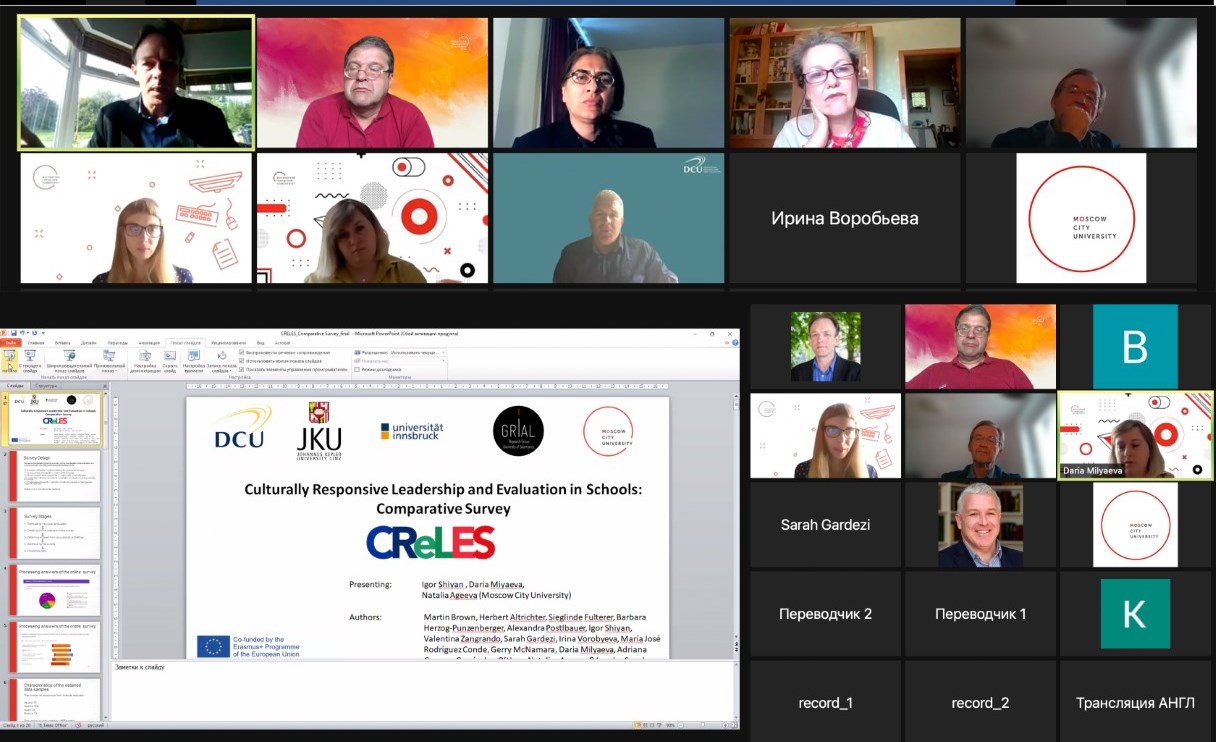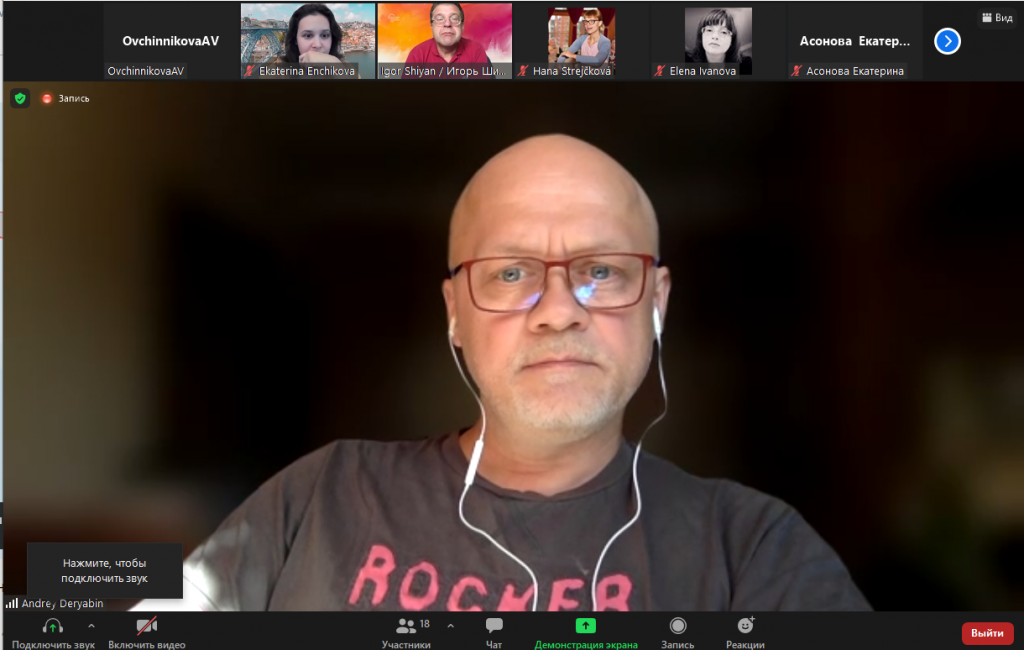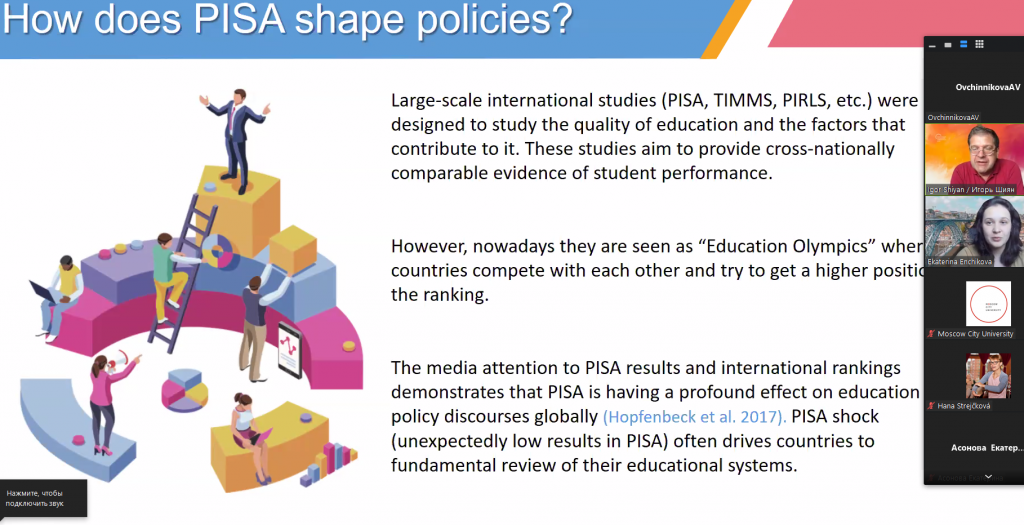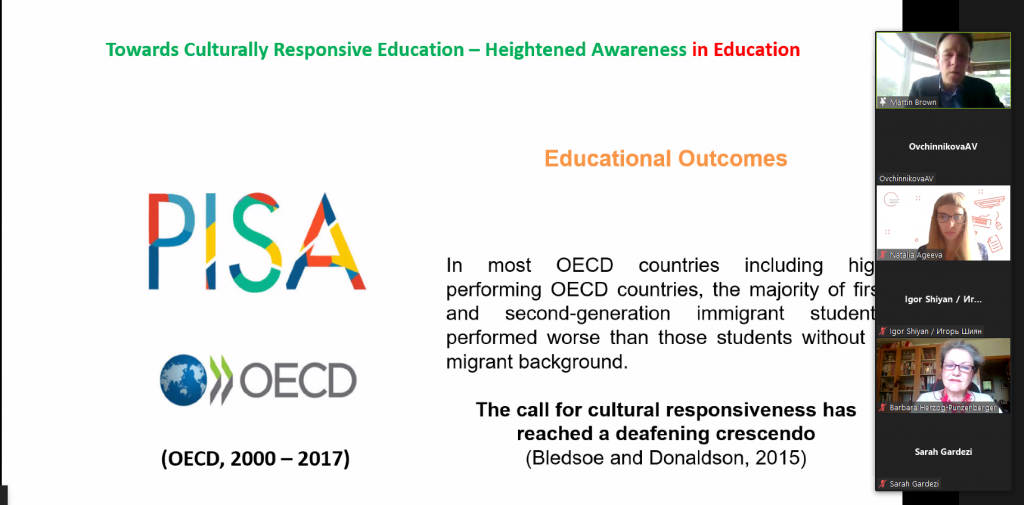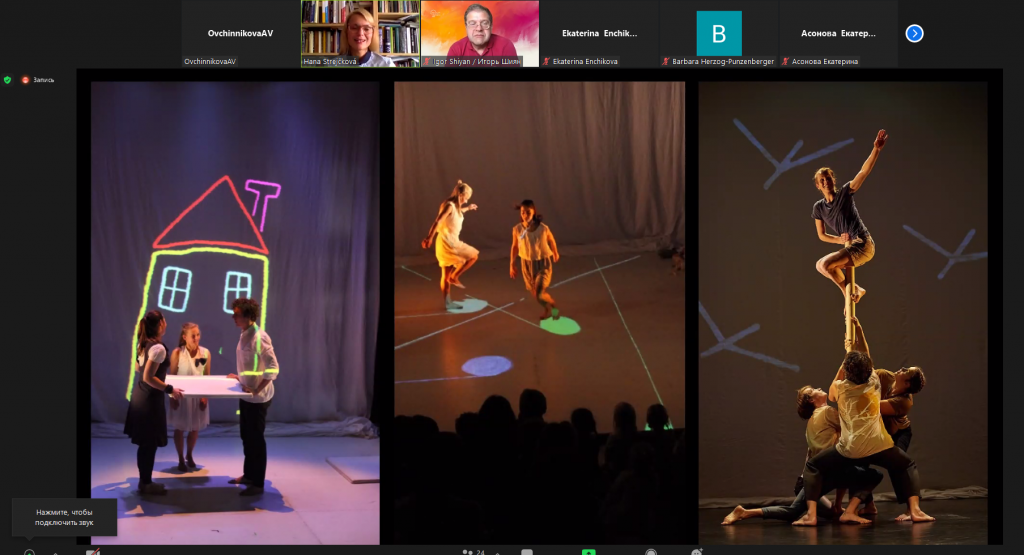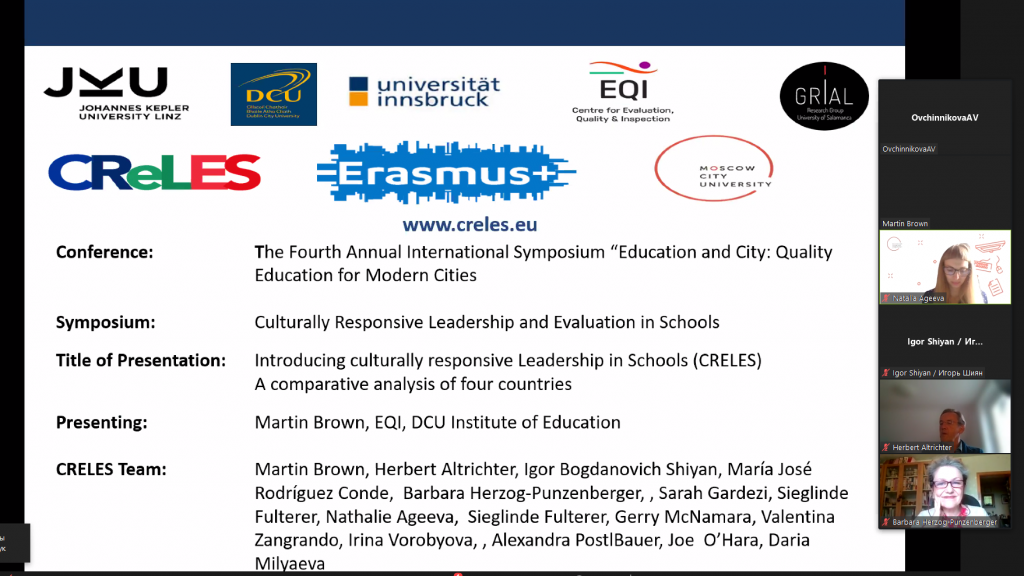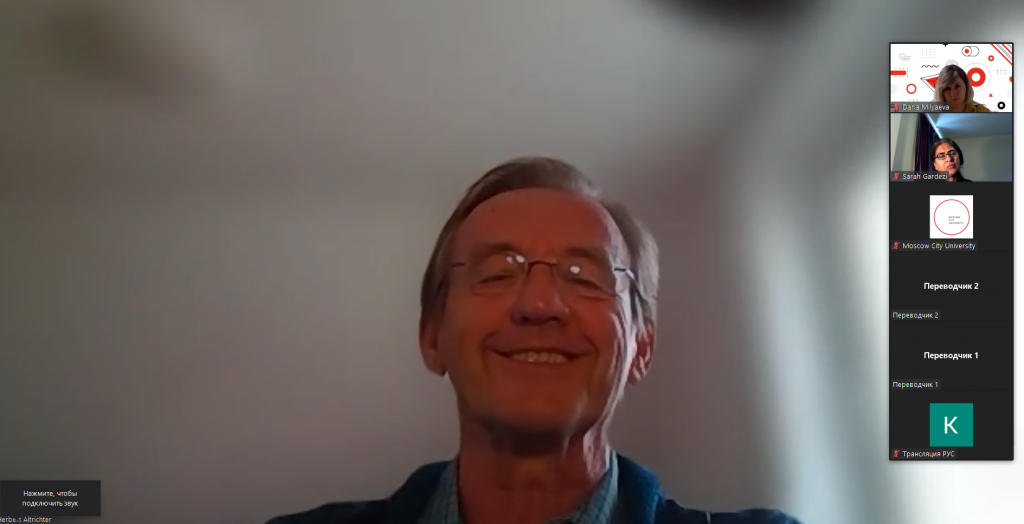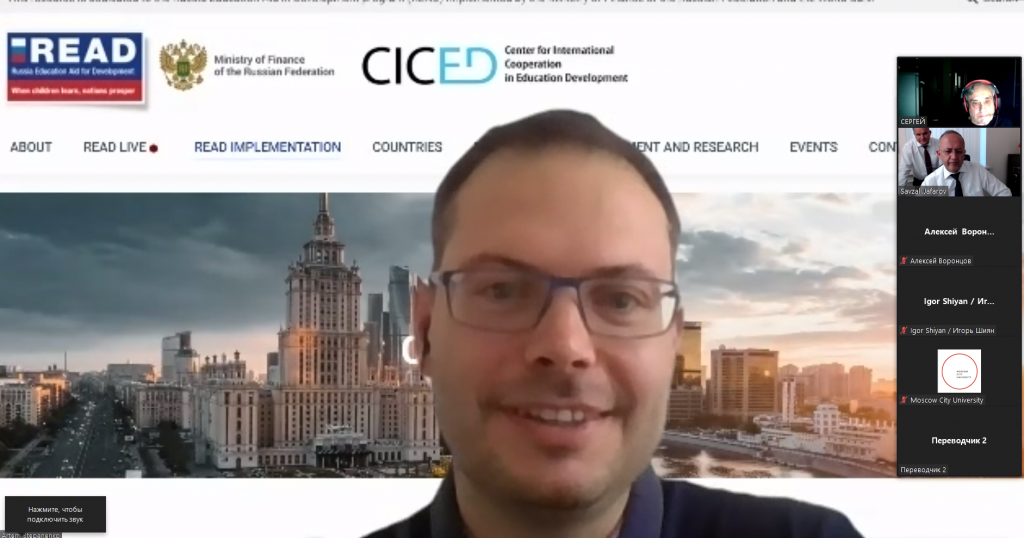The 2nd day of the 4th Annual Symposium “Education and City: quality education for modern cities” started with the plenary session moderated by Igor Shiyan where Andrey Deryabin (Russia) discussed the phenomenon of data-literacy in a modern city, Ekaterina Enchikova (Portugal) spoke about the PISA test and its impact on social equality, and Hana Strejčková (Czech Republic) presented efficient methods of theatre pedagogy.
At the Mini-symposium dedicated to the Erasmus+ project CRELES (Culturally Responsive Leadership and Evaluation in Schools) the members of the international consortium of researchers from Ireland, Austria, Spain and Russia discussed the issue of cultural responsivity and inclusiveness in education, as well as the challenges and supports of promoting the concept of culturally responsive leadership in schools.
Martin Brown (Dublin City University) presented the project outline and context, Herbert Altrichter (Johannes Kepler University Linz) and Barbara Herzog-Punzenberger (University of Innsbruck) explained the conceptual framework underlying the project, while Daria Milyaeva and Natalia Ageeva (Moscow City University) shared the findings of the comparative study that included an in-depth statistical analysis of the data obtained through a cross-country survey of schools leaders’ attitudes.
The presentations were followed by an insightful discussion which was joined by Joe O’Hara, Sarah Gardezi (Dublin City University) and Igor Shiyan (Moscow City University). The researchers pointed out the fact that cultural responsivity is often perceived by educators as being responsive to the dominant culture, while the concept of diversity incorporating such aspects as multilingualism, ethnic and religious diversity is only partially covered by the school curriculum.
At the next panel discussion “Educational Urbanism: The Energy of the New Concept” the participants discussed educational urbanism as one of the modern trends in formal and non-formal education. The keynote speakers included Konstantin Bulish (RANEPA), Maxim Bulanov and Anastasia Rossinskaya from the MCU’s Laboratory of Socio-Cultural Educational Practices. Head of the Laboratory Ekaterina Asonova was moderating the discussion.
The roundtable discussion “The Index of Urban Life Quality from the Perspective of Educational Stakeholders” was opened by Elena Ivanova, head of the Laboratory of Educational Infrastructures, with the report “What helps us to be happy and satisfied in a city?”. The experts of the Laboratory discussed the topic of public transport and pedestrian accessibility in the metropolis, the phenomenon of educational eco-urbanism and the development of eco-friendly living habits in a modern city.
The next was the panel discussion “International Localization and Application of the SAM Group Tools” organized by Center for International Cooperation in Education Development (CICED) and Europe and Central Asia Comparative Education Society (ECA-CES). The speakers from Armenia, Kyrgyzstan, Tadjikistan, Belarus, and Russia discussed the content of the Russia Education Aid for Development (READ) program and a new cross-country project on the development and implementation of experimental education to improve educational achievements.
The report “University and Community Partnership to Enhance Quality Education in Cities” by Bill Edgington and Andrey Koptelov (The USA) concluded the 2nd day of the Symposium. The speakers touched upon the issues of university and community cooperation and its role in improving of education quality in modern cities.
The full programme of the Symposium’s events is available here.

